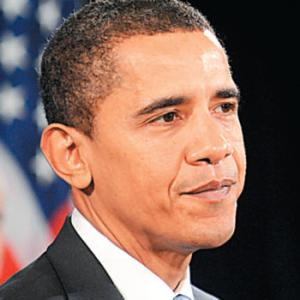Obama Had No New Proposal

 IRD: Generally, the basis of our assessment and understanding of incidents and events is based on news and the background surrounding it. The impact of President Obama’s remarks should also be assessed through the understandings and statements released by different sides.
IRD: Generally, the basis of our assessment and understanding of incidents and events is based on news and the background surrounding it. The impact of President Obama’s remarks should also be assessed through the understandings and statements released by different sides.For example, if we are to assess the impact of his speech on Palestine, we should first observe the reaction of the Palestinian side. The same rule applies to the peace talks, and the developments in Syria, Yemen, Egypt and Bahrain.
For example, the Palestinian Authority initially had a positive approach to Obama’s speech but immediately announced that it will consult with other Palestinian and Arab leaders. The Hamas movement announced that Obama’s statements were a repetition, and an intervention in Palestinian internal affairs.
The interesting point about Obama’s speech is the reaction of the Syrian government and the opposition. The criticism of the Syrian governed over Obama’s speech is evident and understandable. However, the opposition was also disappointed at Obama’s position regarding the continuation of Bashar Assad’s government.
At any rate, its seems that Obama has talked about very important issues in his first public speech after the developments in the Middle East and North Africa, and also after negotiations between the Palestinian and the Israeli sides had ended in a deadlock. However, some experts believe that despite the propaganda about his speech for being a historical one, it was not significantly different from his other speeches.
It is said that the topics he chose to talk about were selective. For example, he talked about Bahrain and Syria with caution while not even mentioning the long time domestic despotism of Saudi Arabia or its intervention in Bahrain. Therefore, it seems that Obama has mostly focused on advancing the position of the US instead of providing any solutions to problems and crises.
A look at the Western media interpretation can also be interesting. After his speech “The Guardian” wrote in its editorial that his policy toward the Middle East was not clear, and that whenever the recent developments were inconsistent with the strategic interests of the US, America has not backed them. “The Independent” also mentioned that there was no new topic in Obama’s remarks, which were made with eloquence and fluency, and asked how the Americans could reconcile the principles of democracy with the oil pipelines in the Middle East.
“The New York Times” stated in its editorial section that no change of policy was heard in Obama’s remarks and that he was not able to propose a new plan to restart the negotiations between Israel and Palestine. It has also likened Obama to a boxing coach who yells well but is not willing to enter the ring.
“The Washington Post” said that the internal evaluations of Arab countries like Egypt and Syria were not very optimistic, either. Typically, these countries believe that Obama did not act upon the promises he made in his 2009 speech in Cairo.
Therefore, it seems that our analysis and assessment should not go beyond those countries which were the subject of his speech.
However, regarding Obama’s recent position on the recent reconciliation between Fatah and Hamas, I should say that the components of this reconciliation are rooted in regional developments and popular uprisings. These changes have forced both sides to agree with a national reconciliation. The important aspect of Obama’s speech is his remarks on the Palestinian and Israeli peace talks.
However, it seems that the Americans were not able to propose a new strategy for these negotiations or counter the harsh statements made by Netanyahu. His approach was not very different from his previous ones regarding this issue. He referred to the return of Israel to the ‘67 borders and added the issue of land exchange to it. He pointed out that the settlement agreements must be defined. He also brought up the issue of an Israeli government, which was among the points he gave to the Israeli side.
But Netanyahu was not content with Obama’s remarks due to the difficult internal situation he is facing, which could end in the collapse of his government in the event he takes further softer stances. The Israelis are concerned about the fact that the proposal for an independent Palestinian state is to go to the UN General Assembly this September. This is one of the issues that they believe they should prevent in their agreements with the US.

